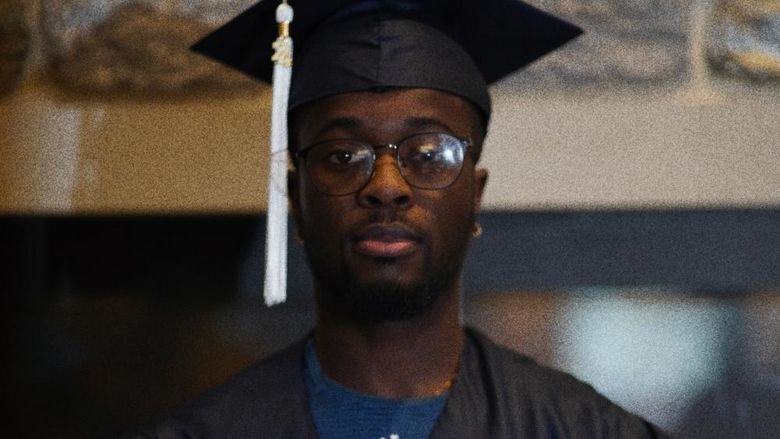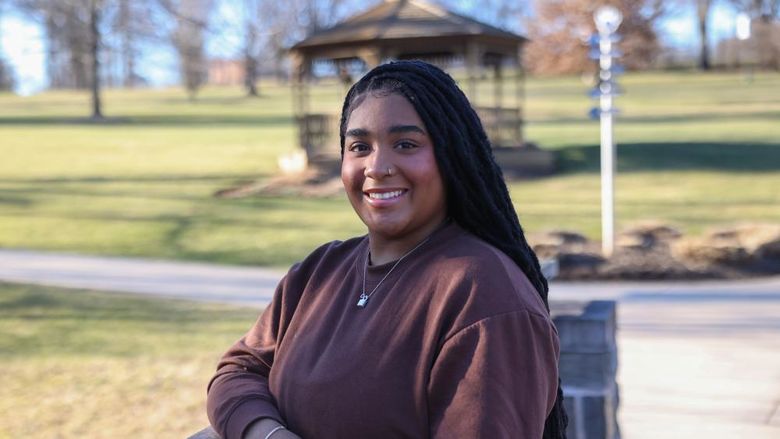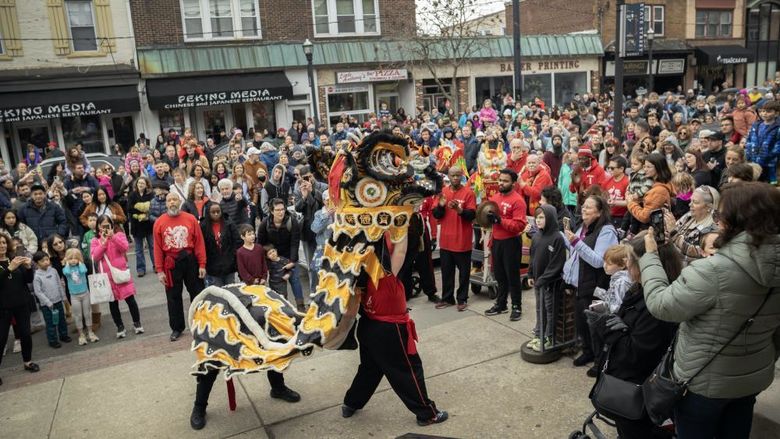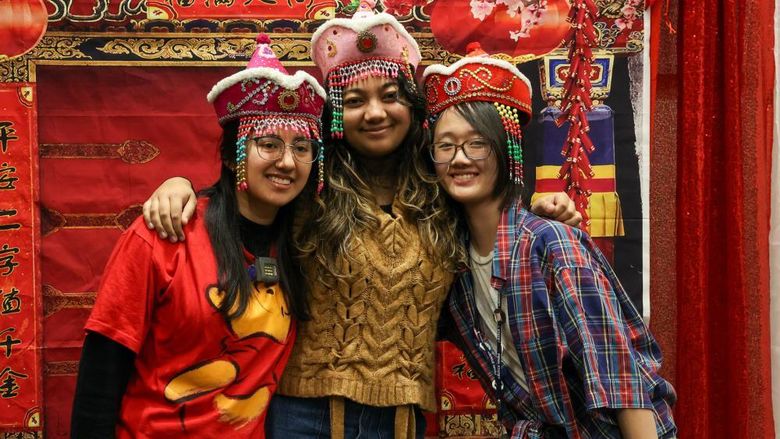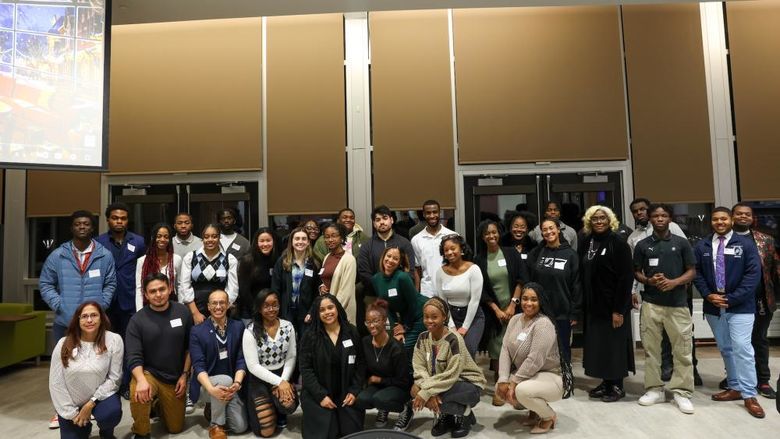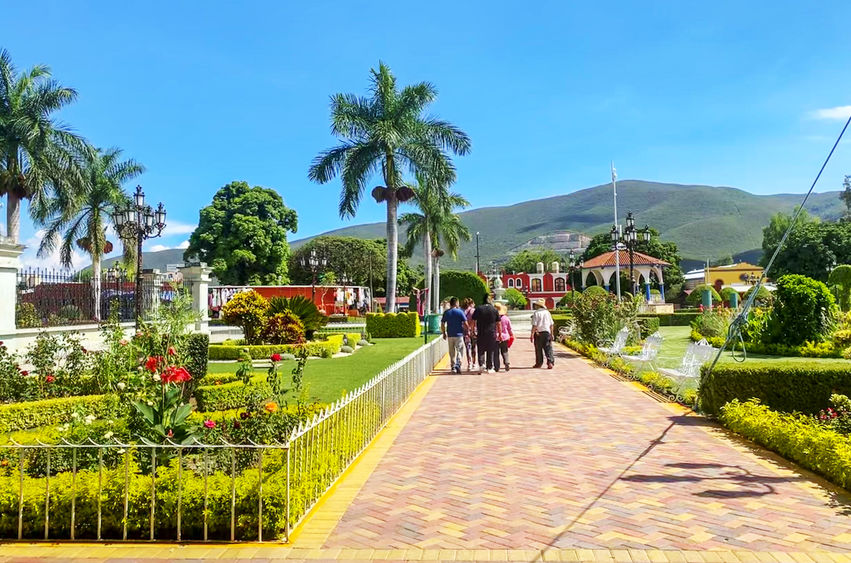
A view of Oaxaca, Mexico, where four College of Education faculty members will conduct a four-week Maymester course in the spring.
The creation of another international program — this one in Mexico — will allow College of Education students to develop abilities in social responsibility and leadership in multicultural/multilingual contexts.
A four-week, Maymester stay in Oaxaca, Mexico, is the setting for students to cultivate collaborative relationships with Mexican university student partners and develop intercultural skills. The new program, "Boundary Work in Oaxaca, Mexico: Experiences in Multilingualism, Indigenous Knowledge and Intercultural Exchange,"will be offered annually beginning with a one-credit spring semester course and a second three-credit summer session course to include travel to Mexico in May.
The program seeks to prepare students for educational, advocacy or community-based work that values and supports multilingualism and global interrelationships, and recognizes the resource and power inherent to a multicultural community. To cultivate a commitment to global citizenship, the program will bring together students from two nations for online instruction (spring) and in-person experiential learning (Maymester) to examine language attitudes and ideologies as well as explore the cultural and linguistic diversity in their respective national and local contexts.
Penn State's College of Education is collaborating with faculty from Penn State Brandywine, and the Universidad Autónoma Benito Juárez de Oaxaca (UABJO), the primary public university of the Mexican state of Oaxaca. Faculty leaders are Associate Teaching Professor Elizabeth Smolcic, assistant professors Uju Anya and Amy Crosson from University Park and Associate Professor Daniela Martin from Penn State Brandywine.
"The idea is to offer a rich and engaging experience for students from our college but also from across university programs … directed to students who have interest in becoming more globally minded and in learning about other cultural ways of being, interculturalism and learning languages," said Smolcic, who specializes in teaching English as an additional language in the Department of Curriculum and Instruction.
"The new program opens doors for students to interact with their peers in the Mexican university context and get on-the-ground, hands-on experience as a first step toward bilingualism and global competencies."
The College's Ecuador Immersion Program, also coordinated by Smolcic, allows students to earn an English as a Second Language (ESL) teaching certificate through five courses and a teaching practicum. In contrast, the Mexico program, Smolcic said, is a shorter and less intensive experience to give the chance to learn about Mexico and engage with community-based educational groups in Oaxaca. It will include some experiences in bilingual schools, but will not cover ESL teaching ,which the program in Ecuador will continue to address.
The program is expected to begin in the spring 2020 semester with a one-credit course offered online with some weekend face-to-face sessions. The group will travel to Mexico with Penn State faculty during the month of May.
Global Programs funded an exploratory trip in the spring for Smolcic and Anya to make connections with the Mexican university and community groups and get the ball rolling.
"The trip was very productive, informative, and it gave us an opportunity to see firsthand the richness of Oaxaca, and all that the city and surrounding regions have to offer in a phenomenal intercultural educational experience for our Penn State students," Anya said. "We also got a chance to see and directly arrange on-ground what could actually work for a successful program, which differed in key ways from our imaginings and abstract plans."
In Mexico, the attendees stay and share meals with Mexican homestay families; receive instruction in Spanish or an indigenous language (Zapotec); participate in classes,; engage in ethnographic scholarship with community organizations; and partner with Mexican university students who are learning English in their own pathways to becoming bilingual. The experience will include weekend excursions and experiential learning in Indigenous and Afro-Mexican communities in rural areas of the state of Oaxaca.
Oaxaca was chosen, Smolcic said, because of its overall beauty. "Sandy beaches, rugged mountains and both Spanish colonial and well-preserved indigenous architecture and ancient archeological sites," she said.
"Happily, we experienced the Oaxacan people as friendly and helpful, but Oaxaca is also one of the most diverse states in Mexico with 16 officially recognized cultural/linguistic groups. Since the city of Oaxaca was recognized by UNESCO as a World Heritage Site, it has become one of the most-visited cities in Mexico."
Demographically, Oaxaca stands out due to a very high percentage of indigenous peoples, with roughly 30% of the population identifying as indigenous. "Along with Spanish, people speak Zapotec and Mixtec, and many other indigenous languages are spoken widely. Hundreds of thousands of people are multilingual speakers in the state of Oaxaca," Smolcic said.
To the south, Oaxaca has a significant coastline on the Pacific Ocean and happens to be one of the most biologically diverse areas in Mexico. "The city of Oaxaca is in the mountains and then you enter areas of tropical cloud forests at higher altitudes and further to the southwest is the coast with long expanses of wide sandy beaches," Smolcic said.
"One of the motivations of this project is to help students make connections among issues of cultural, language and environmental sustainability. Thinking about the world from an ecological perspective means being knowledgeable about environmental impacts as well as cultural and language loss and making sure that human and natural worlds can continue to co-exist together."
Smolcic sees that many students in the College of Education want to have international experiences and build their knowledge of the world. "We should be teaching about global mindedness and sustainability. Becoming culturally and globally competent is a part of our educational expectations. … It already plays a role in the mission statements of the College of Education, the University and is implicit in what people are looking for as they move into professional worlds," Smolcic said.
"I see this program as sort of a way to get our feet wet. What does it feel like to be immersed in another cultural/language environment? How can we learn from the experiences and histories of people who have grown up in environments very different from our own?"
Smolcic said knowing more about the world and being able to share or teach about the world from real-life experience is extremely valuable.
"It also builds a lot of self-confidence for a young person; one can say in a job interview ... I've been abroad, I spent four weeks living with a family in Mexico; I went through a lot of cultural adjustment. That's an impressive thing that not a lot of people in the world have the privilege to say," she said.
Anya cited the added bonus of the program's participants getting to know Mexico and the Mexican people a little better. "Many are aware of our current political climate with a lot attention on the immigration debate and a troubling strain of political discourse that's hostile against Mexicans in the U.S., calling them 'criminals' and 'invaders,' for example," she said.
"They or their parents may have also heard that Mexico is a 'dangerous' or 'lawless' place. This program in Oaxaca is a valuable opportunity for Penn State students to see beyond all that rhetoric to personally meet and learn from our North American neighbors. While Mexico has its challenges like any other country, they will see Oaxaca City and surrounding regions as a uniquely gorgeous and hospitable place, hosting hundreds of international student visitors at any given time — even more during peak seasons — with no greater problems than an average mid-size U.S. city, and a vibrance that defies any stereotype,” Anya said.
Along these same lines of broadening the horizons of the Oaxaca program attendees and countering stereotypes of what Mexico and Mexicans are, Anya said the participants of this study abroad program will have an opportunity to meet a little-known sector of the country's populace.
"Many people are not aware that Mexico has quite a sizable black population," she said. "Much of the state of Oaxaca and neighboring states like Guerrero and Veracruz, especially in the Costa Chica region bordering the Pacific Ocean, are home to Afro-Mexican and Afro-Indigenous communities that have been gaining recognition in both Mexico and the world as important agents and contributors to the national and cultural identities.
"Our Penn State program in Oaxaca will include overnight excursion to Puerto Escondido to spend a day visiting the beach and additional days experiencing life, local culture and learning about Afro-Mexican histories and communities, including religious and cultural expressions, social issues concerning the youth, and more.
"Our African American study abroad program participants may be especially interested in seeing a different slice of the Afro-descendent diaspora experience, or in short, what it's like to be black in a different part of North America," she said.
The four faculty members involved in this new program also received a grant from the University's Equal Opportunity Planning Committee (EOPC) to allow and support students from underrepresented backgrounds to be able to have experiences at the University that they might not have otherwise.
"We will have some scholarship funding to financially support students from underrepresented backgrounds, which means in this case students that are from non-dominant racial, ethnic or language backgrounds, but also first-generation students," Smolcic said.
"For the first two years we have some support that will help with the cost of going abroad, like the fees for the stay in Mexico, and the flight. Statistically, the numbers of students from underrepresented backgrounds who actually participate in study abroad is really low, it's not proportional.
"We hope to make a difference in perceptions that students have about who can participate in study abroad and what international learning is all about," she said.

